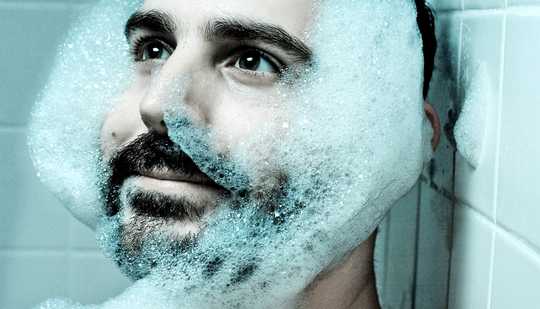
Taking a bath between one and two hours before bedtime in water of about 104-109 degrees Fahrenheit can significantly improve your sleep, report researchers.
Systematic review protocols—a method used to search for and analyze relevant data—allowed researchers to analyze thousands of studies linking water-based passive body heating, or bathing and showering with warm/hot water, with improved sleep quality.
“When we looked through all known studies, we noticed significant disparities in terms of the approaches and findings,” says lead author Shahab Haghayegh, a PhD candidate in the biomedical engineering department in the Cockrell School of Engineering at the University of Texas at Austin. “The only way to make an accurate determination of whether sleep can in fact be improved was to combine all the past data and look at it through a new lens.” The paper explaining their method appears in Sleep Medicine Reviews.
Sleep, temperature, and your circadian clock
The researchers reviewed 5,322 studies. They extracted pertinent information from publications meeting predefined inclusion and exclusion criteria to explore the effects of water-based passive body heating on a number of sleep-related conditions: sleep onset latency—the length of time it takes to accomplish the transition from full wakefulness to sleep; total sleep time; sleep efficiency—the amount of time spent asleep relative to the total amount of time spent in bed intended for sleep; and subjective sleep quality.
Get The Latest By Email
The researchers then used meta-analytical tools to assess the consistency between relevant studies and showed that an optimum temperature of between 104 and 109 degrees Fahrenheit improved overall sleep quality. When scheduled one to two hours before bedtime, baths can also hasten the speed of falling asleep by an average of 10 minutes.
Much of the science to support links between water-based body heating and improved sleep is already well-established. For example, scientists understand that a circadian clock located within the brain’s hypothalamus that drives the 24-hour patterns of many biological processes regulates both sleep and our body’s core temperature, including sleep and wakefulness.
Body temperature, which is involved in the regulation of the sleep/wake cycle, exhibits a circadian cycle, being 2-3 degrees Fahrenheit higher in the late afternoon/early evening than during sleep, when it is the lowest. The average person’s circadian cycle is characterized by a reduction in core body temperature of about 0.5 to 1 F around an hour before usual sleep time, dropping to its lowest level between the middle and later span of nighttime sleep. It then begins to rise, acting as a kind of a biological alarm clock wake-up signal. The temperature cycle leads the sleep cycle and is an essential factor in achieving rapid sleep onset and high efficiency sleep.
90 minutes before bed
The researchers found the optimal timing of bathing for cooling down of core body temperature to improve sleep quality is about 90 minutes before going to bed. Warm baths and showers stimulate the body’s thermoregulatory system, causing a marked increase in the circulation of blood from the internal core of the body to the peripheral sites of the hands and feet, resulting in efficient removal of body heat and decline in body temperature.
Therefore, if people take baths at the right biological time—one to two hours before bedtime—they will aid the natural circadian process and increase their chances of not only falling asleep quickly but also of experiencing better quality sleep.
The research team now hopes to design a commercially viable bed system with patented Selective Thermal Stimulation technology. It allows manipulation of the thermoregulatory function on demand and dual temperature zone temperature control that can be tailored to maintain an individual’s optimum temperatures throughout the night.
Additional researchers who contributed to the research are from the UT Health Science Center at Houston and the University of Southern California.
Source: UT Austin
books_health







